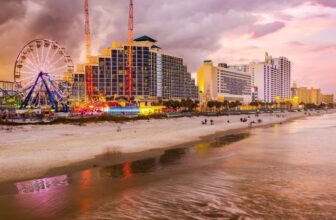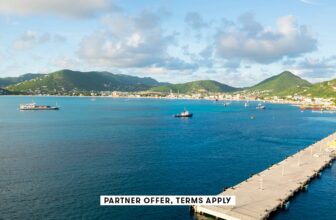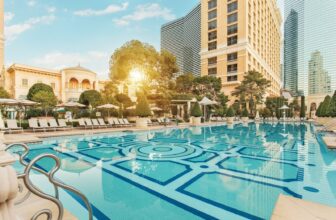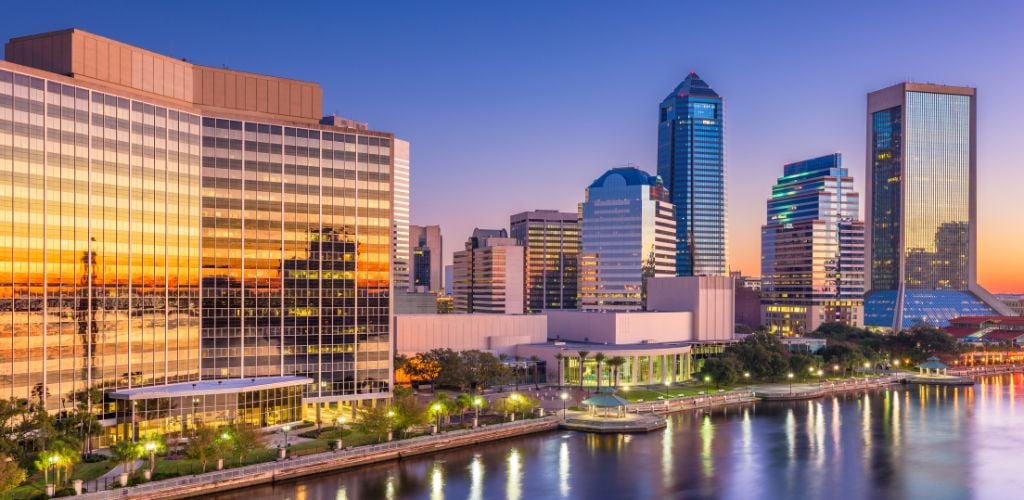
[ad_1]
When planning any trip, you want to make sure that wherever you’re going is safe. So, is Jacksonville safe? After visiting the city for five years and living here full-time for a year, I can tell you that Jacksonville is a perfectly safe place to visit for tourists. Just like all big cities, you just need to know which areas to visit and which areas to avoid in Jacksonville.
According to U.S. News, Jacksonville was ranked #16 on the “Best Places to Live” in the United States. It’s truly a beautiful city with lots to offer, many great areas to stay, and an almost endless list of things to do. Here’s a bit more about Bold City and its overall safety.
Is Jacksonville Safe For Visitors?
Overall, tourists don’t need to worry about their safety in Jacksonville. Places that tourists go to, like downtown and the beach areas, are perfectly safe and are known for their low crime rates.
The weather can be a bit intense during the rainy months (August and September), so proper trip planning is definitely advised. Flights can be delayed and road travel might be dangerous at times, however, inclement weather usually passes fairly quickly in Jacksonville.
I love living in Jacksonville and have never felt that my safety was in jeopardy. Tourists should feel assured that theirs won’t either.
Weather In Jacksonville
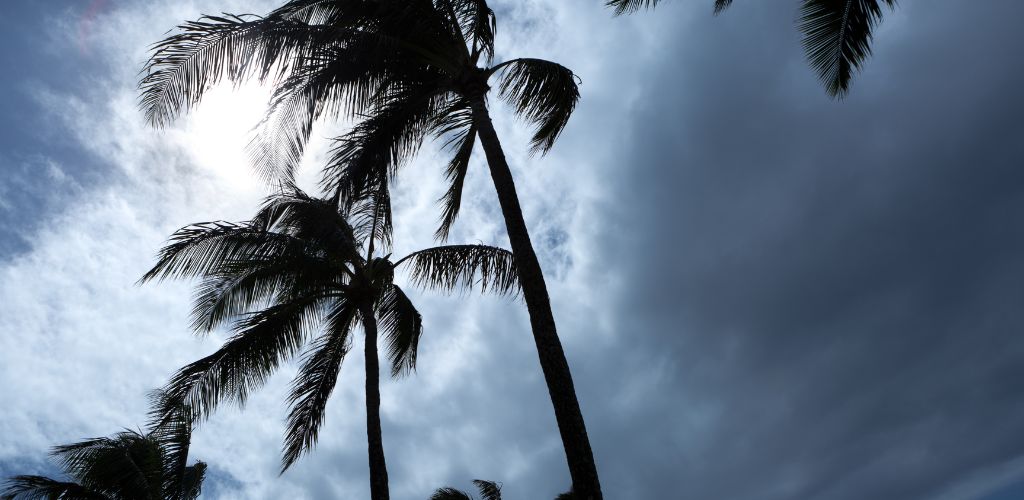
The weather in Jacksonville varies greatly from season to season. Most people think Florida is warm all year round, and while the summers are hot and humid, the winters are actually quite cool. In fact, over the course of a year, the temperature varies from 46 to 95 degrees.
Expect heavy downpours and thunderstorms during the hot summer months, and crisp, bright days during the winter months. Whatever season you decide to visit Jacksonville, it’s always beautiful and there’s always a fun activity to do.
The thing I love the most about living in Jacksonville is that just when you’ve had enough sunshine, you get relief from a little bit of rain before the sun returns. It’s a subtropical climate (unlike the tropical climates in Miami or Tampa) which I personally find to be ideal.
SEE ALSO: Best Time To Visit Jacksonville, Florida (By a City Local)
Hazardous Weather and Natural Disasters
Jacksonville can experience severe storms from late May to September. Heavy rainfall, lightning, damaging winds, hail, and even tornadoes are possible. July through September is the peak of the wet and stormy season.
In September of 1964, Hurricane Dora caused 14 inches of rain that resulted in horrific flooding around the city of Jacksonville. However, the worst storm to hit Jacksonville was Tropical Storm Irma in September of 2017. The St. Johns River flooded to historical levels, putting Jacksonville and Jax Beach underwater.
Hurricane Season in Jacksonville
Hurricane season runs from June 1st to November 30th, however, the season generally peaks between mid-August and late October. Thankfully, due to Jacksonville’s location, hurricanes and tropical storms tend to miss the city, and significant damage is usually avoided. The two storms mentioned above are the biggest to hit the city in over 100 years.
Things to Know About Safety in Jacksonville
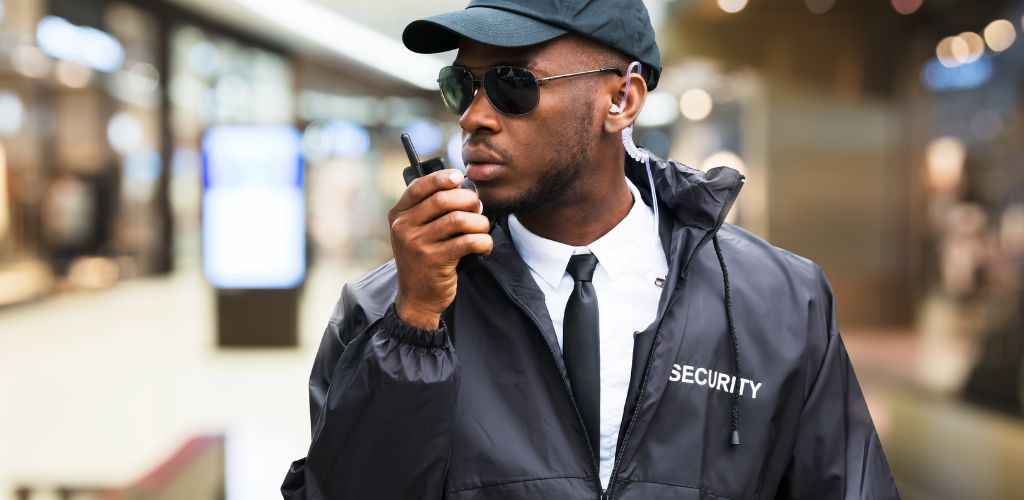
Safety for visitors and residents in Jacksonville is generally not a concern. Overall, for large cities, Jacksonville is a safe city to visit – of course, as with any large city, certain areas should be avoided. After five years of spending time in the city, I’ve never felt unsafe in the places and areas I frequent.
Since Jacksonville is a major city, visitors need to do their research and know which places are safe and which areas should be avoided. Nearly all tourist and popular attractions, events, and restaurants are located in safe areas of Jacksonville.
Crime in Jacksonville
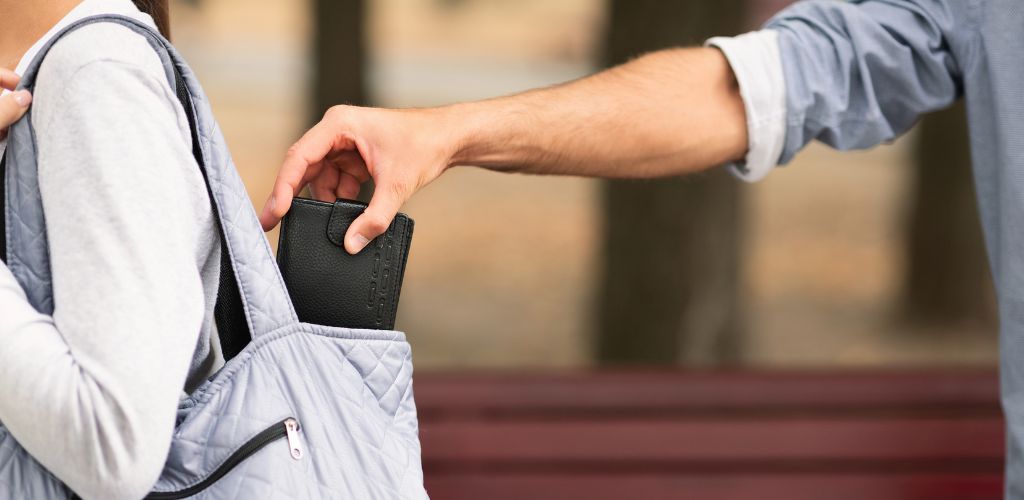
The statistics for crime and safety in Jacksonville are a little striking and aren’t a proper representation of the popular tourist spots of the city. However, due to high crime in certain areas, the numbers can be a bit alarming. Any visitors should always complete their own thorough research before choosing which neighborhood to stay in.
According to Neighborhood Scout, Jacksonville was given a total crime index of 8, which means it’s safer than 8% of U.S. neighborhoods. The crime rate is approximately 33.76 (per 1,000 residents) with 6.87 being violent crimes. In comparison, the violent crime rate in the U.S. is approximately 5.6.
CrimeGrade.org gives Jacksonville a crime grade of “C,” which is around the same average as other major U.S. cities. They also place Jacksonville in the 45th percentile for safety which means 55% of cities would be considered safer and 45% of cities are more dangerous.
Jacksonville Safety Tips
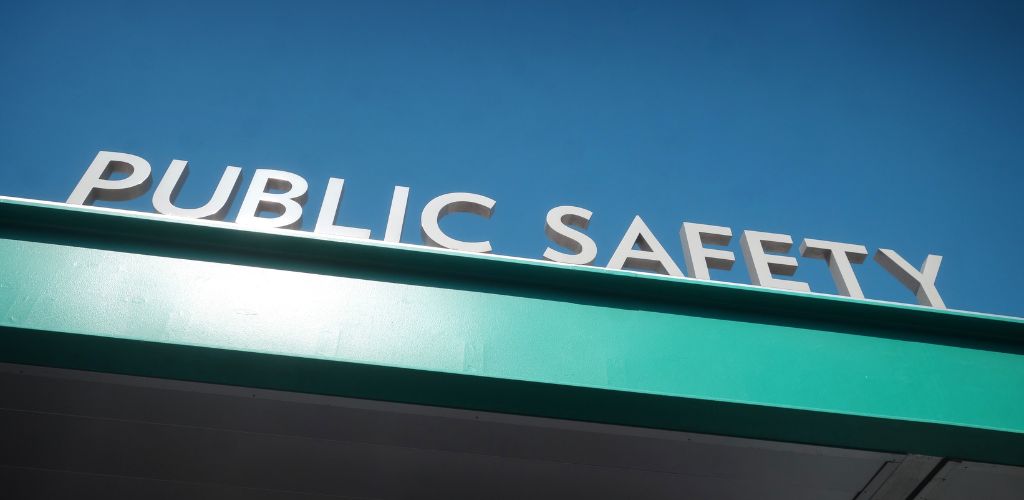
Despite the figures above, there are many safe areas in Jacksonville and ways to ensure your safety and comfort while visiting the city. In 2021, the city saw a 28% drop in violent crime and the sheriff’s office is working to ensure those numbers go down every year.
I’ve explored Jacksonville from top to bottom, and its surrounding areas as well, so I’ve been able to get a good gauge of which neighborhoods are the safest. Here are some insights and tips about safety in Jacksonville that I’ve gathered over the years.
Safe Neighborhoods and Areas in Jacksonville
Jacksonville is a massive, sprawling city with dozens of neighborhoods. Within the Jax city limits, there are also lots of very safe neighborhoods. These are the top three safest areas in Jacksonville.
Eagle Bend: The small, quiet area of Eagle Bend is by far the safest neighborhood in Jacksonville, boasting a crime rate 94% lower than the city’s average. It’s a beautiful neighborhood surrounded by nature and it’s also very affordable.
Ortega Forest: With a crime rate 81% lower than the Jacksonville average, the affluent area of Ortega Forest on the west side of the city is very safe. It’s one of the wealthiest neighborhoods in the city where you’ll find riverfront mansions built in the 1900s.
Girvin: One of the safest beach towns in Jacksonville is Girvin. Its crime rate is 77% lower than the city’s average which makes it quite enticing. The area is popular with the younger crowd and has a lively nightlife scene.
Common Scams in Jacksonville
Thankfully, there aren’t many tourist-related scams in Jacksonville, however, Florida ranks as the second-worst state for scam victims and Jacksonville ranks as the 10th-worst city for potential scam victims. Sadly, many of these scams target senior citizens.
Email Scams: Email scams are common in the Jacksonville area. Potential victims will receive an email disguised as a delivery service such as USPS, FedEx, or UPS. They trick you by saying a package is delayed and encourage you to click a link then provide personal information or send money.
Phone Scams: Scams via text or cell phones are very common in Jacksonville. One disturbing scam is when the scammer calls a potential victim, asks “Can you hear me?” and records the call. They then use your response of “yes” or “no” to attempt to sign up for services that only require a verbal agreement.
LGBTQ+ Safety
Jacksonville has a vibrant LGBTQ+ community, however, a 2017 study showed that 75% of lesbian, gay, bisexual, and transgender adults in Northeast Florida experienced threats, chronic disrespect, and harassment because of their gender or sexual orientation.
The results of the study will be used in grant-making decisions and the implementation of Jacksonville’s Human Rights Ordinance. This ordinance prohibits discrimination based on race, sex, sexual orientation, and gender identity. Currently, Florida has no such nondiscrimination laws.
Drinking Water Safety
The tap water in Jacksonville is perfectly safe to drink. The JEA (the local water utility) says they test the water more than 50,000 times per year. Even though it’s safe to drink, some claim that it has an unpleasant taste in areas of the city and locals have expressed feelings that more could be done to purify the water.
If you’d like more details on the water’s test results, the JEA releases Water Quality Reports every year. You can download reports dating back ten years.
Prepare For Jacksonville’s Weather
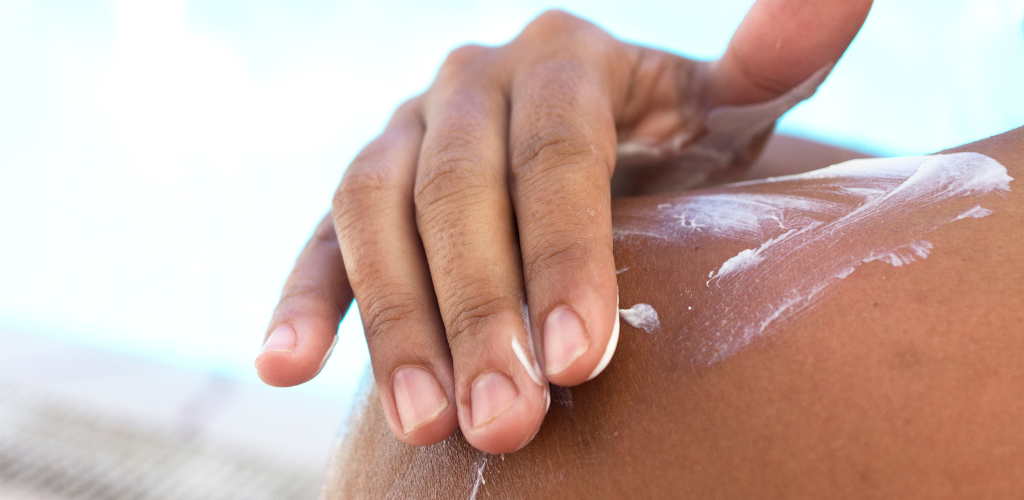
Depending on when you visit, Jacksonville’s weather can be unpredictable at times. I’ve learned a few tips while living in Jacksonville and I’m more than happy to share them with you.
Always have an extra layer in the car: Keeping a sweatshirt or hoodie in the car is something I always do now. In the summer, it’s extremely hot, so you’ll most likely be wearing shorts and a tank top, but many restaurants and bars are blasting their A/C and I end up freezing. During the winter, it might be sunny and 65 at noon but clouds can quickly roll in causing the temperature to drop to lows of 55. In both cases, the extra layer is a savior.
Never leave home without sunscreen and bug spray: Florida is mostly sunny all year round, so making sunscreen a part of your daily routine is crucial – not only when you’re at the beach. I advise you to keep bug spray in your bag as well; during the humid summer months, the mosquitos and other bugs can be brutal.
A small umbrella is a big investment: Thunderstorms and heavy downpours can appear out of nowhere in Jacksonville. One minute it’s sunny, and the next, you could be soaked. I like to keep a small umbrella in my bag during the rainy season… just in case.
Be Aware of Your Surroundings
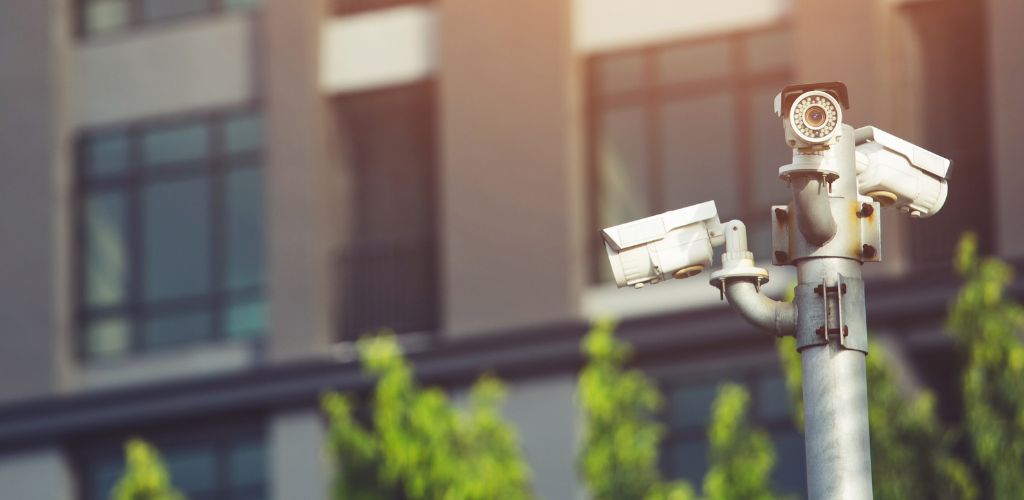
No matter where you travel, it’s always important to be aware of your surroundings. Even in the safest areas of Jacksonville, it’s best to keep your senses sharp at all times. Never walk with earbuds, don’t walk alone at night, and wear a cross-body bag instead of an over-the-shoulder bag.
Stay Near Popular Attractions
When staying near popular locations, you tend to be in safer and lower-crime areas. Places like Jacksonville Beach (and surrounding beach towns), San Marco, or Southside are great options for safe neighborhoods in Jacksonville.
Leave Valuables at Home
Although the chances of theft on your visit to Jacksonville are extremely low, it’s always wise to leave expensive or sentimental valuables at home. Things like rings, designer handbags, or laptops tend to be items that are targeted for theft.
Plan Ahead
Having a game plan is always a good idea when traveling. “Is it safe in Jacksonville?” is a question that shouldn’t play on your mind during your visit. That’s why research and planning are vital before booking any flights or accommodations.
Risks & Warnings in Jacksonville
- OVERALL RISK: Medium
- TRANSPORT & TAXIS RISK: Low
- PICKPOCKETS RISK: Low
- NATURAL DISASTERS RISK: Medium
- MUGGING RISK: Medium
- TERRORISM RISK: Medium
- SCAMS RISK: Low
- WOMEN TRAVELERS RISK: Medium
- TAP WATER RISK: Low
Safety Guide to Places in Jacksonville
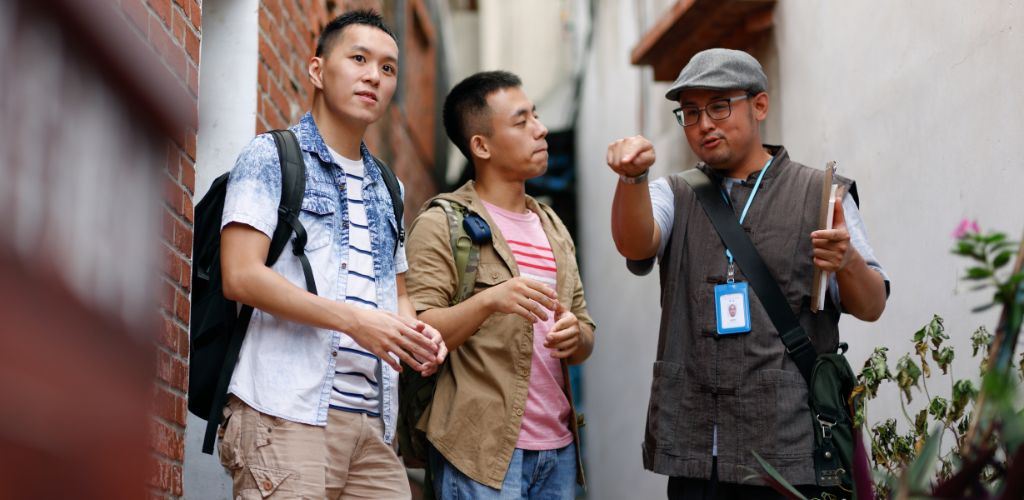
Knowing which neighborhoods and areas are safe and which ones are dangerous will keep you out of harm’s way when you visit Jax. Below, you’ll find lists of safe and dangerous areas in Jacksonville.
Safest Places to Visit in Jacksonville
Safety is always a priority when you’re traveling. Book your hotel or guesthouse in the neighborhoods below, and you’ll be able to rest well at night.
Eagle Bend: As mentioned above, Eagle Bend is by far the safest neighborhood in Jacksonville. Its crime rate is 94% lower than the city’s. The only downside is that it’s quite far from the city center – traveling in will take over half an hour.
Isle of Palms: Just outside of Jacksonville Beach is the beautiful neighborhood of Isle of Palms. Boasting waterfront homes and a world-class hospital, this area’s crime rate is 76% lower than the city’s.
Cobblestone: The walkable neighborhood of Cobblestone in Northeast Jacksonville is incredibly safe. Its crime rate is 80% lower than the city’s.
Places to Avoid in Jacksonville
Like any other major city, there are some dangerous areas in Jacksonville, but high-crime neighborhoods are not where a typical tourist would visit. Downtown and the beaches are very safe. Here are some of the worst neighborhoods in Jacksonville.
29th and Chase: The neighborhood (not an intersection) of 29th and Chase is an area that should be avoided. Located in North Jacksonville, it has a crime rate that’s shockingly 402% higher than the national average. This area makes up a bulk of Jacksonville’s crime.
East Jacksonville: With a crime rate 372% higher than the national average, the area of East Jacksonville isn’t a place you want to venture to. The number of crimes committed is just shy of 29th and Chase.
Mid-West Side: Another dangerous neighborhood in Jacksonville is the Mid-West Side. The crime rate is 379% higher than the national average.
Frequently Asked Questions About Jacksonville Safety
I’ve explored the neighborhoods, talked to long-time locals, and learned a lot about Jacksonville safety. Here are some common questions people tend to have.
Jacksonville’s crime rate is higher than the national average, however, the high-crime areas are not in areas of interest or popular tourist attractions. Neighborhoods that are common for tourists to visit are very safe.
The bad areas in Jacksonville are 29th & Chase, East Jacksonville, and the Mid-West Side.
In safe, tourist-centric neighborhoods, it’s okay to walk at night. It’s always best to exercise caution and only walk during the day or always have someone with you if you’re walking in the evening. In certain, more dangerous areas of Jacksonville, it would not be considered safe to walk at night.
Depending on the neighborhood, Jacksonville is safe for solo travelers. Areas like Jacksonville Beach, Neptune Beach, Avondale, and Mandarin are very safe neighborhoods in Jacksonville.
Jacksonville is safe at night in many areas, especially the beach towns. Mandarin, Avondale, and the Southside are all very safe at night.
Avoid high-crime areas like 29th & Chase, East Jacksonville, and the Mid-West Side.
Yes, Jacksonville is safe for families. Beach towns and San Marco are great options for families.
Jacksonville is safer than Miami. The violent crime rate of Jacksonville is 33.9 while Miami’s is 48.8.
The safest part of Jacksonville is Eagle Bend in North Jacksonville. Other safe areas include East Arlington, Isle of Palms, Girvin, and Mandarin.
New York City is safer than Jacksonville. The violent crime rate of Jacksonville is 33.9 while New York’s is 28.2.
The part of Jacksonville that is the most dangerous is called 29th & Chase. Other unsafe areas include East Jacksonville and the Mid-West Side.
The safest part of Jacksonville is called Eagle Bend, about 30 minutes north of downtown. Other safe areas include the beach towns, Southside, and Mandarin.
Jacksonville’s crime rate is higher than the national average. Violent crime in Jacksonville is 33.9 while the national average is 22.7.
Final Thoughts – Is Jacksonville Truly Safe?
So, is Jacksonville safe? All in all, Jacksonville is a wonderful and safe city for tourists to visit and for people to live in. Even though the data is alarming, it’s important to keep in mind that the majority of crime is occurring in specific areas of Jacksonville. Many neighborhoods are very safe and are ideal for a vacation, a getaway, or a night out.
I’ve loved living in Jacksonville for the past year. I’m continuously finding so many hidden gems all around the city and have never felt unsafe in the places I frequent. If you’re planning a visit or thinking of making a move to the city, your safety in Jacksonville doesn’t have to be a worry or concern.
[ad_2]



